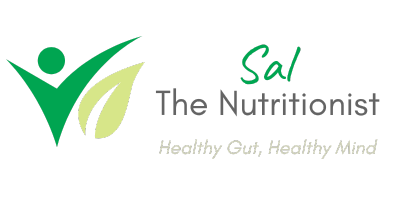When I started to write this blog, I thought where on earth do I start? Overwhelm and racing mind. Sound like ADHD already? So many things to talk about, don’t want to overload with too much information etc, etc. After a few days, it was running into a few pages. Stop! I thought, this has to be simple!! This first blog is about how I came across adult ADHD in the first place and how I view this new world as a Clinical Nutritionist.
When I hear the term ADHD, I don’t think of it has a diagnosis or a label. I’m not against a diagnosis at all and ADHD does exist but I think that a diagnosis can be overused and overmedicated. It helps many people better understand what’s wrong with them. What first comes to my mind though is not ADHD but a medical disorder, in which neurological, nutritional, genetic and environmental factors imbalance the brain, causing imbalanced behaviour.
ADHD first came to my attention when my kids were at school. Real life stories of primary and secondary school students underperforming, hyperactive, disruptive and being given medication. I was horrified. ‘Why are these kids medicated at such a young age?’, and ‘Their parents need to know about a non-medicated option!’.
These thoughts were pushed to the back of my mind until years later, a woman came to see me with ADHD type symptoms. We did the Hair Tissue Mineral Analysis (HTMA) test which told me exactly what was going on with her health. It showed her mineral imbalances/deficiencies and any heavy metal toxicity. This in turn, told me about her metabolism, stress levels, blood sugar levels, adrenal health and much more. 4 months later, she was managing many of her symptoms by making changes to her diet and lifestyle, with the help of therapeutic supplements to improve and balance her mineral levels.
Adult ADHD traits
What exactly are these symptoms or character traits? There are too many to mention but here are a few that you might recognise:
- Unable to concentrate/focus
- Forgetful
- Fixated on specific topics
- Being told you’re dumb, lazy, chaotic
- Strong sensitivity to rejections
- Overactive mind
- Anxiety, depression, stress
- Poor time management skills
- Impulsive and impatient
Do any sound familiar? You may be comfortable with some of these and they might be part of your personality. But some of them can interfere with your everyday life in a negative way and stop you from getting ahead or leading a normal life. I can relate to many of these but I’ve managed to overcome them with diet, nutrition and psychological help from a Kinesiologist and Human Design Coach.
The Whole Person
As a Clinical Nutritionist, I look at the whole person, not the label or diagnosis. This means looking at all the systems of the human body such as the gastrointestinal system, the endocrine system and the nervous system and how these connect to the individual’s diet, nutrient deficiencies, inflammation, gut health, food sensitivities, neurotransmitters, to name a few.
For example – If you talk too fast, you’re super busy, unable to focus on one task, poor sleep, anxiety, impatient – the sympathetic nervous system needs to be addressed. It’s hypersensitive and as many of you know, your gut is connected to your brain. Therefore, the health of the gut microbiome (gluten and other food sensitivities, dysbiosis, leaky gut, constipation), diet (food choices) and nutrient deficiencies (zinc, magnesium and many others are common) is where I start.
The ADHD brain functions differently to the ‘normal’ brain but that doesn’t mean that medication is the only option (I’m not against medication by the way). But I think medication is a band aid approach. The other approach is to treat the person as a whole and assess the neurological, nutritional, genetic and environmental factors.
If you’re wanting to prioritise your health, including your ADHD brain, or have any questions at all, please book a free 20 minute health assessment call here.
Tags
[tags_all_in_one number=”20″ smallest=”11″ largest=”11″ unit=”px” separator=” ” orderby=”name” order=”asc” post=”true”]


Download My Top Tips 'Get Out Of The ADHD Loop Now'
Great, you're in. Check your inbox for your free resource. Save this email address.
Look out for our email newsletter packed with free resources, blogs and tips. Unsubscribe at any time.